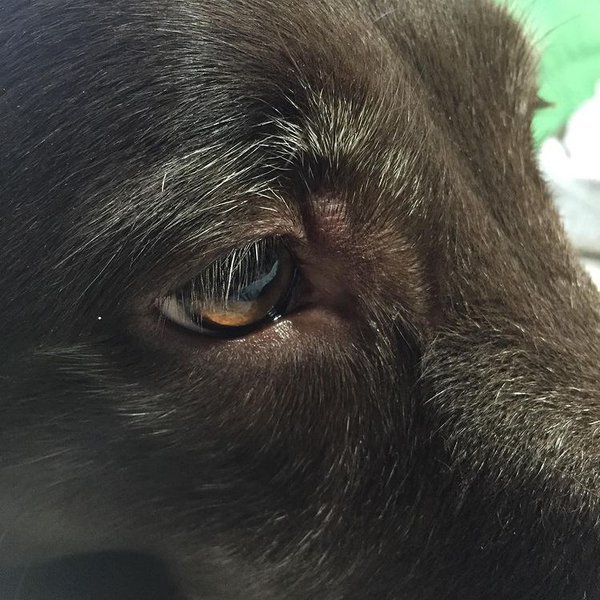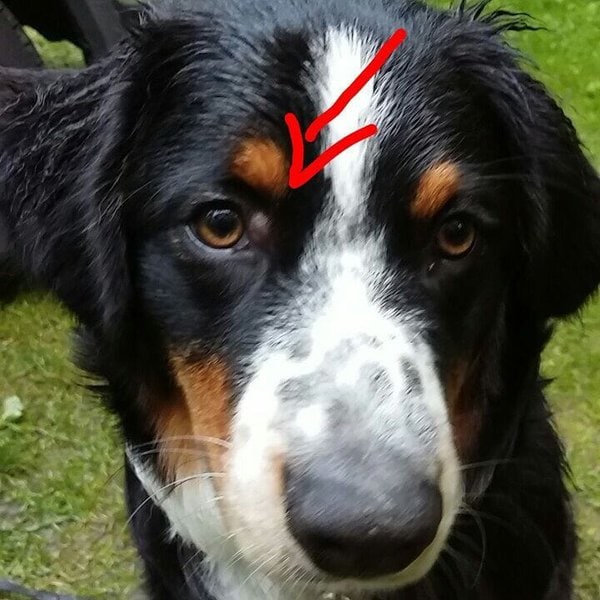Few things can be as annoying as mosquitoes singing around your ears, trying to get a taste of your blood. And if you’re a dog parent, it is only fitting to wonder if your canine buddy is immune to these mosquitoes and their bites.
So, can dogs get mosquito bites? Yes, dogs are susceptible to bites from mosquitoes. And if proper care isn’t taken, a mosquito bite on a dog can degenerate into skin irritation just like on humans or a potentially life-threatening heartworm infestation.
Mosquitoes can be a nuisance to dogs, just as they are to humans, and their bites also come with associated health risks. This article details the health challenges that mosquito bites pose to dogs and signs that these insects have bitten your furry friend. Various treatment methods for mosquito bites in dogs and steps to take to protect your furry friend from these pests are also outlined in this article. But, before we go into all this, let’s see why dogs, even with all the fur that typically covers their bodies, still suffer mosquito bites.
Can Dogs Get Mosquito Bites?

Yes, dogs, just like humans, are prone to suffering from mosquito bites if left exposed to these insects.
Despite the huge chunk of hair that typically covers a dog’s skin, our furry friends are equally as susceptible to suffering bites from mosquitoes. A mosquito’s proboscis, which is responsible for its blood-sucking activities, has a pointy end that can go right past a dog’s topcoat and pierce the pooch’s skin for blood.
When biting dogs, mosquitoes typically go for exposed regions on the pooch’s body, such as the ears, nose, mouth, or belly. But it is important to note that a mosquito bite can take place on any region of a dog’s body.
One difference between mosquito bites in humans and dogs is that, unlike humans, most dogs seem to be less concerned about the activities of mosquitoes on their bodies, only reacting after symptoms of the bite breaks out. As a result, efforts to control the activities of these insects and to protect our pooches from mosquito bites shouldn’t be neglected.
What Happens If My Dog Gets Bitten By A Mosquito?

Mosquito bites on dogs can lead to the development of skin infections, as well as foster the activities of heartworm parasites within the pooch’s body.
Skin Infections
The most commonly observed effect of mosquito bites on dogs is the breakout of small, red, and swollen welts around the pooch’s body. In an effort to get rid of these welts, dogs may scratch at them, and while their intentions are clearly harmless, scratching at bite welts can complicate issues further.
When dogs scratch these welts, there is every tendency for the welts to burst, and this can, in turn, lead to an injury and the subsequent development of skin infections and hotspots.
Heartworm Infestations
One of the most prominent dangers of a dog being exposed to mosquito bites is the risk of heartworm infestation that typically accompanies these bites.
As inferred by the name, heartworms are blood-borne parasitic roundworms that typically inhabit a pooch’s heart. These heartworms use the mosquitos as short-term hosts, and once a mosquito bites a pooch, the worms find their way into the dog’s body system.
Once in a pooch’s body, these heartworms make their way into the dog’s heart or lungs, where they mature and then go on to reproduce, causing several health conditions along the way.
Heartworms are particularly dangerous to dogs because they typically exhibit no symptoms within the first few months of getting into a pooch’s body. However, once they have taken time to develop, heartworms can cause cardiac arrests, bloody urination, and a drastic weight loss in the affected pooch.
How Can I Tell That My Dog Has Been Bitten By A Mosquito?
Symptoms of mosquito bites in dogs are similar to those exhibited by humans. And some of the signs that can tell you that your canine buddy has been bitten by a mosquito include:
- Constant scratching of the affected parts of the body
- Presence of red welts on the bite sites
- Attempts to rub the body against rough surfaces
Parasitic infestations in dogs that occur due to mosquito bites may also come with symptoms such as:
- Loss of appetite
- Lethargy
- Vomiting
- Breathing difficulties
- Depression
How Can I Treat Mosquito Bites On My Dog?
You can treat mosquito bites on your dog by consulting with your vet to check for the presence of heartworm eggs and prescribe the appropriate medication for heartworm infestations.
Skin irritation caused by mosquito bites can also be treated with the use of topical ointments, medicated shampoos, and home remedies such as oatmeal paste.
Consult Your Vet
Because there is a risk of heartworm infestation with mosquito bites in dogs, the first thing to do when you notice the manifestation of symptoms that indicate that your canine buddy has been bitten by a mosquito is to book a session with your vet.
Upon arriving at the hospital, the vet will extract a sample of your pooch’s blood to check for the presence of these parasites.
If your pooch is diagnosed to be suffering from a heartworm infestation caused by mosquito bites, the vet will prescribe the use of medication containing arsenic. This medication is typically administered in small doses, and its usage is generally spread out over several months.
Alternatively, vets may recommend that adult heartworms be surgically removed from the pooch’s body, but it has to be said that this treatment method is extremely risky.
Topical Treatments
If, however, your pooch is determined to be free of heartworms, your vet will prescribe the use of topical ointments or dog-friendly shampoo products to deal with the itching and inflammation that typically accompany mosquito bites.
Over-the-counter medications such as Neosporin and Benadryl are also effective at preventing the infection of mosquito bite sites, but these shouldn’t be used without a vet’s prescription.

What Home Remedies Can I Use To Treat My Dog’s Mosquito Bites?
If the effects of mosquito bites on your pooch are limited to the skin only, then there are several home remedies you can apply to bring relief to your canine buddy.
Some of these home remedies include:
- Application of milk of magnesia to the bite area
- Preparing and applying an oatmeal paste to the welts
- Applying a mixture of baking soda and water on the bite sites
You can also try gently massaging the bite site with ice or frozen gel packs to minimize swelling and reduce itching in the pooch.
How Can I Protect My Dog From Mosquito Bites?
You can help protect your dog from mosquito bites by coating the pooch’s body with diluted essential oils when going on walks, installing barriers to keep out mosquitoes, keeping your yard clear of stagnant water, and placing the Fido on heartworm preventive medication.
The aftereffects of mosquito bites on dogs – heartworm infestations, skin infections – are considerably expensive to treat. And this is why the best route to take is to put the necessary measures in place to protect your canine buddy from the bloodsucking mosquitoes.
That said, some of the ways you can protect your Fido against mosquito bites are well outlined below:
Make Use Of Essential Oils
Certain essential oils contain bug-repellent properties, and these can be applied to a pooch’s body when going out on a walk to protect against mosquito bites. However, because essential oils are typically very concentrated, they are not recommended for direct use on dogs, and you should ensure to dilute them before use.
One common recipe you can try out is to mix between 5 to 10 drops of essential oils such as lemon eucalyptus oil or basil oil with five teaspoons of apple cider vinegar, then 5 to 10 oz of distilled water and hazel, respectively.
However, not all essential oils are safe for use on dogs, and you should be very mindful of whatever product you’re applying to your canine buddy. That said, some of these essential oils that are toxic to dogs include:
- Cinnamon oil
- Citrus oil
- Peppermint oil
- Sweet birch oil
- Tea tree oil
Application of the aforementioned oils on a pooch can lead to skin irritation, and the typical concentrated smell of the oils can also be problematic for pooches.
Install Protective Barriers
Another way of protecting your canine buddy from mosquito bites is by the installation of window screens and storm doors at strategic places around your home.
Additionally, when going out for a walk, you can dress your dog in a special doggie shirt or jacket to ward off the attention of bloodthirsty mosquitoes.

Keep Your Environment Clean
Stagnant, smelly bodies of water are an ideal breeding ground for mosquitoes; Hence, you should ensure that your yard, and by extension, your immediate vicinity is clear of these unhealthy and potentially dangerous water bodies.
Keep Your Dog On Heartworm Medication
The biggest health risk that comes with mosquito bites in dogs is the danger of heartworm infestation. Hence, to provide extra protection for your canine buddy, you can talk to your vet about placing the pooch on a heartworm preventive medicine.
These preventive medicines are usually very effective at curbing the activities of heartworms within a pooch’s body system. And even if your Fido were to get bitten by a mosquito, you’d only have to be concerned about the effects of the bite on the pooch’s skin.
Heartworm infestations in dogs typically take up to six months to manifest; Hence, to be on the safer side, it is recommended that you take your canine buddy for heartworm tests at least once a year.





